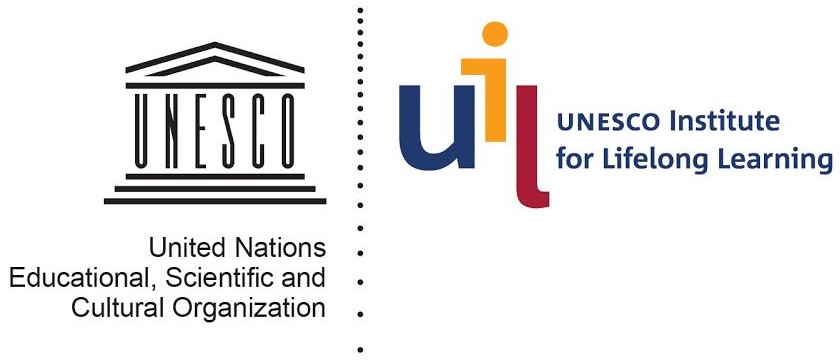27 Jan Perspectives On ‘Lifelong Learning’

Introduction
In my quest to learn more about lifelong learning, I have come across scholars who have offered compelling perspectives that have advanced the idea and the concept of continuous education.
I have compiled my findings from my literature review in this article. I hope you find the read insightful and I look forward to reading your thoughts.
Dr Sim Quan Seng
A half-millennium concept
Lifelong learning has its roots way back to traditions that stemmed before the common era. Writing and theorising about lifelong learning reaches back a half millennium. The idea of lifelong learning is found in the work of Bishop of the Unity of the Brethren, Jan Amos Comenius (1592-1670). He described the levels of education (school) as the following:-
- Prenatal school
- Infancy school
- School of boyhood
- Adolescence school
- School of youth
- School of adulthood
- School of old age
- School of eternal rest
These schools for Comenius not only represent institutional, but also experiential education, where the young from 7 to 25 years of age get an education in the formalised institution of school, but ultimately the experience of education is and should end with a journey.
Pursuit of Knowledge
According to Wikipedia, lifelong learning is the “ongoing, voluntary, and self-motivated” pursuit of knowledge for either personal or professional reasons, thereby enhancing social inclusion, active citizenship, personal development, self-sustainability as well as competitiveness and employability.
Evolved from the term ‘life-long learners’ which was created by Leslie Watkins, the term recognises that learning is not confined to childhood or the classroom but takes place throughout life and in a range of situations.
Allen Tough, a Canadian educator and researcher, asserts that almost 70% of learning initiatives are self-planned, and in the last fifty years, constant scientific and technological innovation and change have had profound effects on how learning is understood. As such, learning can no longer be divided into a place and time to acquire knowledge (school) and a place and time to apply the knowledge acquired (the workplace).
Instead, learning can be seen as something that takes place on an ongoing basis from our daily interactions with others and with the world around us. It can create and shape shift into the form of formal learning or informal learning, or self-directed learning.
Not Bound by Classrooms
Lifelong learning has also been linked to the scope of learning during the adult phase of life. Alexander Kapp, a German educator, coined the term ‘Andragogik’ in 1833 and described the need for learning as a practical necessity in the whole life of adults.
The American author Eduard Lindeman in his 1926 book, The Meaning of Adult Education, asked for a form of education that “was not bound by classrooms and formal curricula. Rather, it involved a concern for the educational possibilities of everyday life, non-vocational ideals, situations not subjects, and people’s experiences”.
A New Dimension
Around 1970 in Europe, a new chapter in the discussion of lifelong learning began. New in dimension and by new proponents, the French term ‘Education Permanente’ (‘Permanent Education’ in English) was used. Subsequently, the Council of Europe, an international organisation promoting co-operation between all countries of Europe, initiated a ‘Committee for Out-of-School Education’. The interest of states and governments in adult education was becoming evident.
UNESCO had, years earlier, started an international world meeting on adult education, the CONFINTEA (Conférence Internationale sur l’Education des Adultes). The conference takes place every 12-13 years, and in the 1997 Hamburg, Germany instalment, a turning point in the global recognition of and commitment to adult learning and non-formal education was reached.
Learning Begins at Birth

As holistic care and education continue to play critical and pivotal roles in young children’s lives, lifelong learning and healthy development, early childhood care and education (ECCE) received global recognition in 1990 when it was introduced as an integral part of basic education at the UNESCO World Conference on Education for All in Jomtien, Thailand, whose declaration affirmed that ‘learning begins at birth’.
Now using the American term ‘lifelong learning’, adult education became defined in a wide sense as the “the entire body of ongoing learning processes, formal or otherwise, whereby people regarded as adults by the society to which they belong develop their abilities, enrich their knowledge, and improve their technical or professional qualifications or turn them in a new direction to meet their own needs and those of their society”.
Ancient Roots
Although Lifelong Learning is to many a modern-day idea, its philosophical foundations find its roots in ancient China, India, and Greece.
Confucian education philosophy (551–479 BCE) is a philosophy that has been argued to be a philosophy of lifelong learning. The Confucian notion of lifelong learning is particularly relevant to describing later life learning or continued learning by older people. There are two very popular aphorisms of Confucius that espouse the need to keep on learning even in old age: ‘There is no boundary to learning’ and ‘Keep on learning as long as you live’. Confucius states that ‘learning should be a lifelong, transformative, self-cultivating process’. It is through learning that a person seeks self-fulfilment by constantly bettering themselves and others, through family, society, and even in Confucius’ view, the cosmos. It is through lifelong learning that one would garner self-growth and betterment to become a virtuous person and to develop wisdom.
The Hindu worldview extends this notion of community even further. In writing about the Hindu perspective on adult learning in the workplace, Ashok and Thimmappa point out that “individuals, organisations, society, the universe, and the cosmos are all interrelated and integrated. The development of human resources is thus viewed in terms of facilitating the individual to realise oneself and to understand the intricate relationship between the individual and his or her role in the organisation, the role of the organisation in the society, society in the universe, and the universe within the cosmos”.
It was in 15th century Greece that lifelong education ideals were first fully expressed in the concept of paideia, which would extend beyond the years of schooling and would last throughout the whole life. While paideia first appears in Homer, its full crystallization takes place during the classical period under the influence of such giants of thought as Socrates, Plato and Aristotle.
From the Islamic viewpoint, the Prophet Muhamad articulated the importance of lifelong learning when he expressed, “Seek knowledge from the cradle to the grave.”
Western and Eastern Ideals
The dichotomy of the western and eastern ideals on lifelong learning is evident. Schwartz gives explanations relating to the different value emphases between hierarchy and egalitarianism, between conservatism and autonomy, and between mastery and harmony. According to him, eastern societies are found to value hierarchy, conservatism and harmony, whereas most western societies regard intellectual and affective autonomy and egalitarianism as most important.
With a focus on the structure of relationships, Hofstede offers explanations in terms of the contrasts between individualism for the western culture and the collectivism characteristic of the eastern culture. Nisbet et al. have tried to explain east-west differences in terms of cultural cognition; they describe the east as holistic and the west as analytic. Holistic cognition gives attention to the whole picture, seeing the relationship between objects and the context, involving multiple perspectives. Analytic cognition applies abstract rules by detaching objects from their context.
Summary
In summary, lifelong learning has its roots way back to traditions that stemmed before the common era. Honed and nurtured by eastern civilisations, the concept is further made pertinent to the dynamics of today’s day and age by western inspiration, thus proving that the idea is vital and essential to the cultivation of the human person. International agencies such as UNESCO and the World Bank are globalising lifelong learning through the propagation of discourses that have brought forth corresponding strategies, guidelines and policies; the ‘Learning Cities’ initiative is one such universal agenda.
Bibliography
Ashok, H. S., & Thimmappa, M. S. (2006). A Hindu worldview of adult learning in the workplace. Advances in Developing Human Resources, 8(3), 329-336. doi:https://doi.org/10.1177/1523422306288425
Lifelong learning. (2019, March 1). Retrieved from Wikipedia : https://en.wikipedia.org/w/index.php?title-Lifelong_learning&oldid-885646122
Lukaš, M., & Munjiza, E. (2014). Education system of John Amos Comenius and its implications in modern didactics. Život i škola, LX(31), 32-44. Retrieved from https://hrcak.srce.hr/index.php?show= clanak&id_clanak_jezik=185051
Merriam, S. B., & Kim, Y. S. (2011). Non-western perspectives on learning and
knowing. In S. B. Merriam, & A. P. Grace (Eds.), The Jossey-Bass reader on contemporary issues in adult education (pp. 378-390). San Francisco: Jossey-Bass.
Michopoulous, A. (1983). The philosophical foundations of lifelong learning. 5th
Annual Lifelong Learning Research Conference, February 17-18. Retrieved from https://www.academia.edu/29081760/ The_Philosophical_Foundations_of_Lifelong_Learning?auto=download
Tam, M. (2018). Lifelong learning for older adults: Culture and confucianism.
In M. Milana, S. Webb, J. Holford, R. Wallwer, & P. Jarvis (Eds.), The Palgrave international handbook on adult and lifelong education and learning (pp. 857-878). London: Palgrave Macmillan. doi:https://doi.org/10.1057/978-1-137-55783-4_44
UNESCO-Institute for Education. (1997). Adult education: the Hamburg Declaration; the agenda for the future. Fifth International Conference on Adult Education, 14-18 July 1997. Retrieved from https://unesdoc.unesco.org/ark:/48223/pf0000116114
United Nations Development Programme; United Nations Children’s Fund;
World Bank. (1990). Final report – World Conference on Education for All – Meeting Basic Learning Needs. New York: Inter-Agency Commission for the World Conference on Education for All. Retrieved from https://unesdoc.unesco.org/ ark:/48223/pf0000097551


No Comments